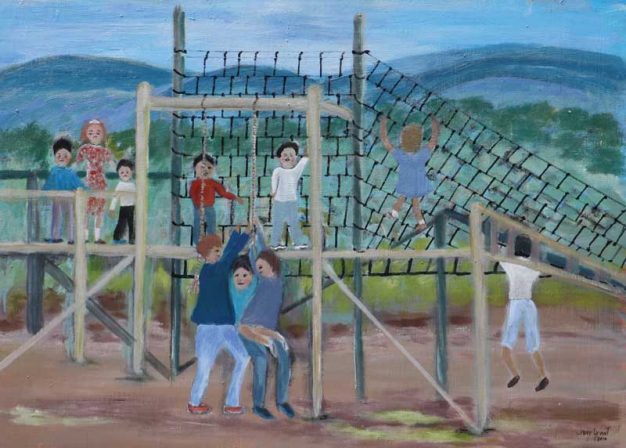
What can you tell the UK Parliament about children’s future needs in cities?
A UK Parliamentary inquiry wants to hear evidence from across the board about how children and young people’s needs can be prioritised in the future design of cities.
In a major step forward for getting children’s outdoor experiences and play rights into the public arena, the government wants to hear from all those who have something to say, such as urban planners, charities, children’s rights groups, health professionals, councils and any other individuals and organisations.
And it’s thanks to the joint efforts of Playing Out, which campaigns for children’s freedom to play outside, Fields in Trust, which champions green spaces, Tim Gill, a leading children’s play advocate, and Dinah Bornat, a child-friendly design architect, that this issue is now firmly on the table.
They successfully made a joint application to the Department of Levelling Up, Housing and Communities Committee for it to launch an inquiry into ‘Children, young people and the built environment’.
‘A meaningful input’
Alice Ferguson, director and co-founder of Playing Out, said: “We are delighted by the announcement of the launch of this select committee inquiry, which is a real chance to prioritise children’s needs in national built environment policy. Thank you to the Levelling Up Committee, Nicky Gavron, Tim Gill, Dinah Bornat, Fields in Trust and all supporters of our proposal.”
Anyone wanting to give their own evidence and views to the committee has until Tuesday 2 January 2024 to do so.
Clive Betts MP, chair of the Levelling Up, Housing and Communities Committee, said: “It’s important for children and young people’s mental and physical health that they have access to spaces to play and to socialise.
“In our inquiry, we want to find out more about how children and young people experience outdoor spaces in towns, cities and rural areas across England. What policy interventions from local and central government could help to deliver streets, estates, villages, neighbourhoods and parks that enable kids to enjoy active outdoor lifestyles and engage with others?
We want to find out more about how children experience outdoor spaces
“Planning and development should not be indifferent to the interests of young people. Stories of developers disregarding promises to deliver earmarked spaces for children highlight flaws in the current approach to the built environment. The Committee’s inquiry will want to examine how children’s needs are being met by the current planning process.
This inquiry on the built environment, principally concerning landscape architecture and urban planning, will look at local and national government planning policies, guidance and delivery.
Evidence is likely to start being heard in the spring of 2024, and will be on the following terms of reference:
The experiences of children and young people of their built environment
- How do children and young people experience outdoor spaces in towns, cities and rural areas across the country? For example, their streets, estates, villages, neighbourhoods and parks?
- How do these experiences vary across income, race, gender, age?
- How easily can children and young people travel to outdoor spaces and schools? How has this changed over the years?
The planning system
- How well are children and young people’s needs currently met by the planning process in terms of policy and guidance?
- How are children and young people’s views and voices heard, considered and acted upon in the planning system if at all?
Best practice and evaluation
- Where are the examples of policy and good practice that are improving children and young people’s experiences in the built environment, either directly or indirectly, in the UK or internationally?
- How are these outcomes measured? For example, through economic or health and wellbeing indicators?
Cross Government working
- How does the relationship of children and young people with the built environment overlap with policy areas beyond the work of DLUHC, such as public health, transport, policing and net zero?
- Are government departments working together to address children and young people’s needs in this respect?
Click here for details of how to submit your evidence.




